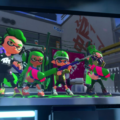Cognition Dissemination: This Nintendo UK Piracy Case Ruling Is Bad

Nintendo won yet another key case in their perpetual battle against video game piracy in the UK. The country’s high court ruled in their favor in a case that involved a fight against four websites that provided instructions on how to hack the Nintendo Switch. They also hosted custom firmware the system’s internal software could be replaced with, sold modified hardware, and hosted game downloads. Nintendo has since patched the Switch firmware loopholes that could be used to install custom firmware and has now released an updated console, but systems will always be cracked eventually. Because of that, the five major UK ISPs will now be on the hook to “block, or at least impede access” to sites that host this kind of material.
The fan response to the ruling has been a mixture of celebration and disappointment, a sign of how far the gaming community has come in understanding the difference between mere emulation (which, by itself, is legal) and piracy (which is, of course, not legal). Fighting piracy is good on the surface, to ideally prevent publishers from losing sales on their games. Some websites involved in this suit were particularly nefarious, and Nintendo was within their rights to go after them. But given the sheer number of sites that could be interpreted as piracy dens, this could have dire consequences — especially in the long term.

It’s true that several Switch owners who download custom firmware will use it for piracy, but a not-insignificant amount will stick to utilizing it for homebrew purposes. Acknowledging this can sound naïve to the audience rooting for Nintendo and other companies fighting video game piracy upon hearing it, but it’s true. And that’s only part of it.
Custom firmware can, for instance, be used to play NES and SNES titles that are not and may never be otherwise available on Switch. The desire to use the system for this purpose is high, given how unreliable Nintendo and other publishers have been with making their software archive available on multiple platforms. Every NES and SNES game won’t be available as part of the Nintendo Switch Online service, something made clea as the lineup of NES offerings started petering out just before SNES titles arrived last week. The fact that Nintendo will no longer offer classic games on a monthly basis further proves this.
Homebrew is also good for playing freeware, or to play licensed games that will be eventually removed from the eShop when a deal involving their creation expires. But a site that merely gives instructions to hack a Switch for homebrew can easily be misinterpreted as encouraging owners to pirate in the UK now, which will make it harder (though hardly impossible) for those who don’t want to delve into piracy to find this info.
The biggest reason why this could have dangerous ramifications is software preservation. Not every game will remain on the Switch eShop forever, nor will the eShop itself be around forever. With ISPs blocking access to these websites from here on, it could become too expensive to maintain them without necessary traffic. If the information and eventually software are difficult to find, it will be tough to maintain a software archive years after Nintendo has moved on from Switch support.

The history of the gaming medium thus far has shown how publishers absolutely cannot be trusted to maintain archives of their games themselves, due to the combination of ports with bad emulation and some games simply being lost in time. This will happen with Switch, just as it does with every non-PC platform, and it will be far more comforting if the potential for sites to maintain an archive can exist.
Heck, we’ve already seen evidence of what will happen with the eShop in the future, beyond licensed games eventually disappearing. Nintendo is already removing games from the Wii U eShop. The discounted Nintendo Selects-branded Wii U version of Donkey Kong Country: Tropical Freeze was removed last year, presumably to push consumers into buying the full-priced Switch version. Bayonetta 1 & 2 will also be removed from the Wii U eShop, likely due to Nintendo’s desire to no longer pay continued licensing costs to Bayonetta IP holder Sega for those versions. This will very likely happen with the Switch eShop when the next platform rolls around if it doesn’t have backwards compatibility, though the Wii has shown how the eShop as a whole won’t be around forever.
I hope everyone celebrating this ruling doesn’t realize the dire ramifications this could have too late, but the chance of that happening is high. Piracy will always be around, but it’s a shame legitimate sites could easily get placed on block lists alongside the illicit ones. VPNs will only work for so long, and sites can’t sustain themselves without necessary traffic. Nintendo is also showing no signs of stopping this anytime soon. The future for perseveration on consoles now looks even grimmer, but hopefully someone will maintain a good software archive, which is more likely to happen before game companies start doing so.
They can maintain those archives before gaming primarily switches to streaming. Then we’re all screwed.





